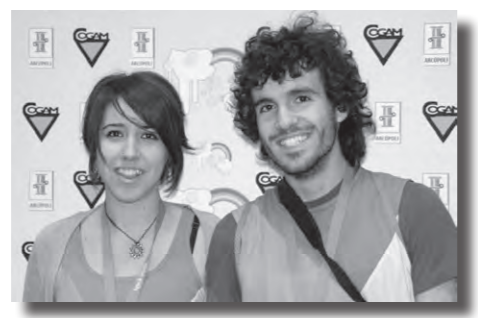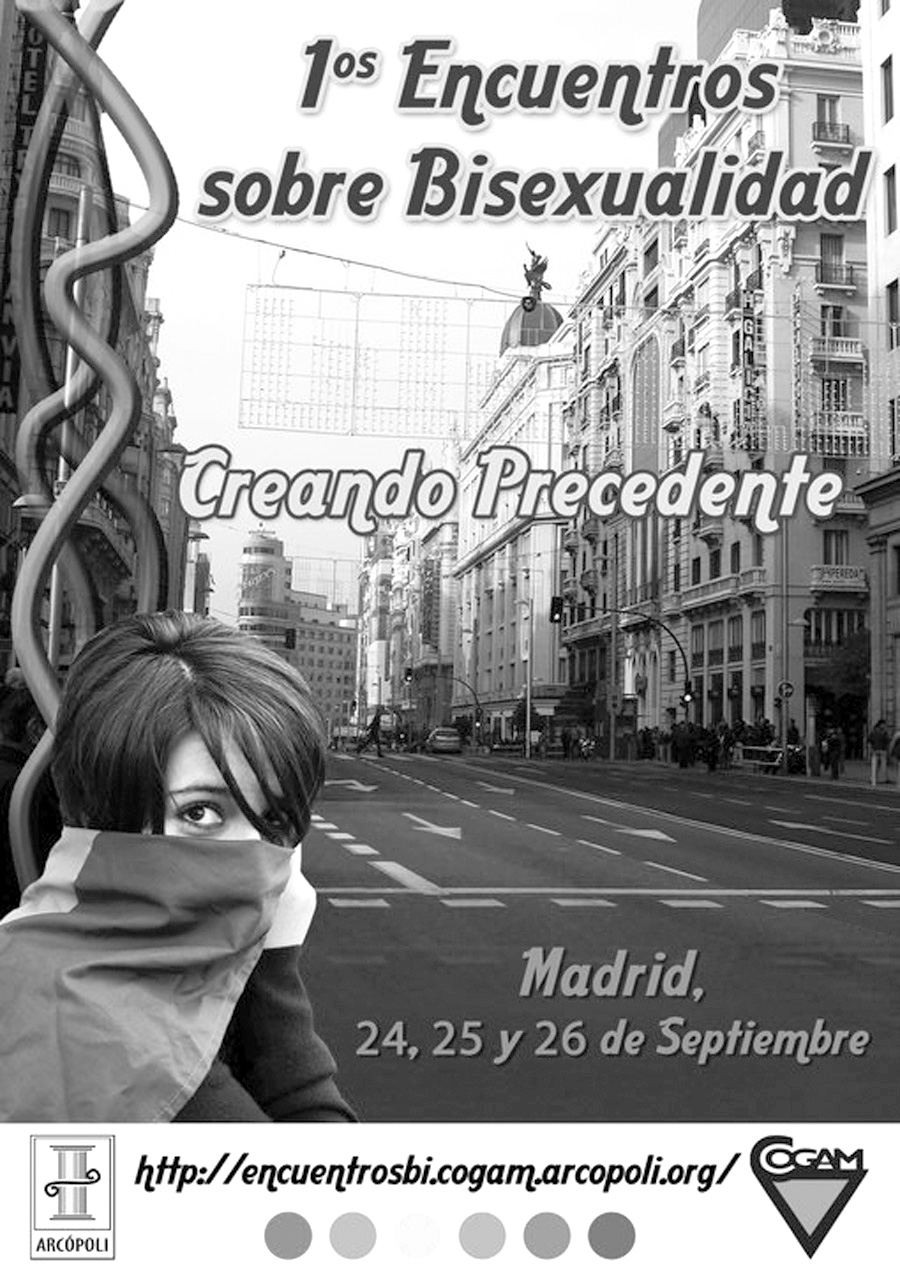Interview by Robyn Ochs
I met Elena in August at the International Conference on Bisexuality. In her 20s, friendly and with an easy smile, Elena combines enthusiasm and a strong sense of purpose with intelligence and calm attentiveness.
Robyn Ochs: Elena, please tell us a little bit about your background.
Elena Marcos: I was born in a small village in Extremadura, a rural area in the west of Spain. It’s an area where the old values are deeply rooted so I never felt that I fit in.
When I was 13, my parents moved us to the suburbs of Madrid. It’s incredible how in a medium-sized country like Spain, it can be completely different to live in one place or another.
I’ve been living in Alcalá de Henares for the past three years, studying architecture in Alcalá de Henares University, one of Europe’s oldest universities.
RO: How did you come to identify as bi?
EM: I have been aware of bisexuality for as long as I can remember, but not that I myself was bisexual. Everyone around me was heterosexual and my only exposure to LGTB community was “gay issues” on television, so I assumed that I was heterosexual. However, no one ever told me what it meant “to be heterosexual,” so I assumed everyone was like me. When I talked with my friends about this and they told me that they only liked boys, I thought they just didn’t want to admit liking girls.
When I came to the university I met a bisexual guy (who is now my boyfriend). We shared experiences and opinions, and I came to identify as bi.
RO: Do you come from a religious background?
EM: Traditionally, Spain has been a Catholic society, especially in rural areas, like mine, where machismo and LGTB-phobia is still rooted. However, in the last 30 years the country has advanced. But religion has not affected me, nor my relationship with my family.
RO: When I met you and your sweetheart Xur at ICB, I was deeply impressed by both of you. Tell us about him and about your relationship.
EM: When I came to University we lived nearby and we were studying for the same degree so we spent a lot of time together working, sharing our life stories, and realizing how much we had in common. At the end of the first year we decided to move together to a flat near our department and then we started our relationship. At first I thought it was going to be hard because we spend a lot of time together but it was not. We became involved in Arcópoli, the LGTBQ+H [Heterosexual] organization of two of Madrid’s largest universities, and we decided to create the same organization in our university.
RO: You and Xur were key organizers of Primeros Encuentros Sobre Bisexualidad (First Bisexual Encounters), the first Spanish conference on bisexuality that took place September 24-26. How did this conference come to be? And how did it go? Tell us about it!
EM: In Spain, the bi movement barely exists. When we started our activism we had no bi bibliography, bi resources, bi groups, bi visibility… so during this last year we have tried to jumpstart the bi movement in our country.
We decided that first step was to create a community, a space where we could meet each other and we said, “Why not to do it ourselves?”
We started this project with no funding or grants, no support from the large organizations and with just around ten people involved. It has been really hard to pull together, but we took for granted that it would be successful because even if it had turned out awful, it would still have been a starting point.

In the end, everything turned out great and we received financial support from CANAE (Confederation of Students’ Organizations of Spain) and help from the City Hall of Getafe, the city near Madrid where the conference was held. People came from all over the country, even people who had become aware of and identified with bisexuality through seeing our posters or our website. It was such a great event that I think we will organize one again next year, and we hope to get the support of the FELGTB (Spanish Federation of LGBT Organizations) to create this desired community.
RO: Do any bi organizations exist in Spain?
EM: As far as I know there are no bi organizations in Spain, there are just bi groups within LGBT ones. In Spain the “B” was introduced to “LGT” just three years ago, although there had been bi activists before then. My experiences show me that there are still some challenges to introducing bi reality into manifestos and missions. However, day by day we’re getting all of the LGTB organizations to start acknowledging us. The Spanish conference gave us the opportunity to meet each other and show the public that we are many, and we want to be listened to. Nowadays FELGTB is restarting the Bisexual Space (bisexual group), which Xurxo leads.
RO: What connections do you have with bi and/or LGT activists in other countries? Does your knowledge of, or contacts with bi or LGBT activism in other countries influence your activism in Spain?
EM: Attending the ICB in London helped me decide what should be my focus in Spain. Also, I realized that to achieve our goals, it is important to be connected to the rest of Europe and the world. I got ideas from the UK, the USA, Denmark, Holland, Germany and our neighbor Portugal. It gave me the opportunity to meet bi Spanish activists who live abroad and gave me ideas about what might work here in Spain. International contact has definitely changed my activist life.
Robyn is the editor of the 42-country anthology Getting Bi: Voices of Bisexuals Around the World and of Bi Women.

